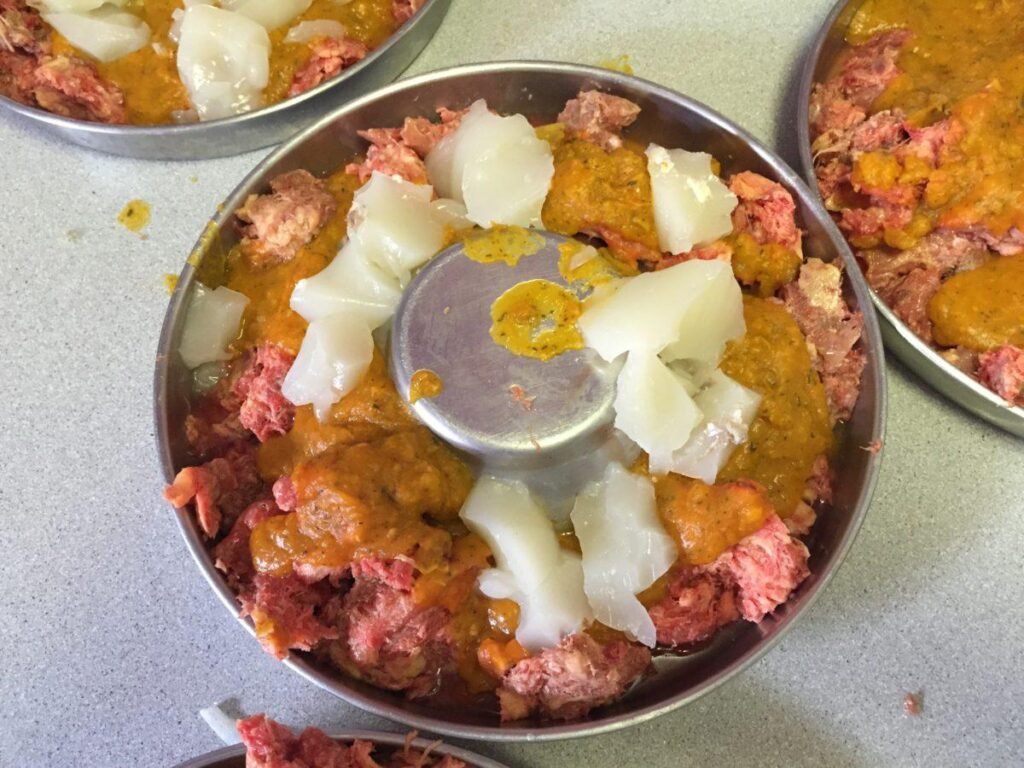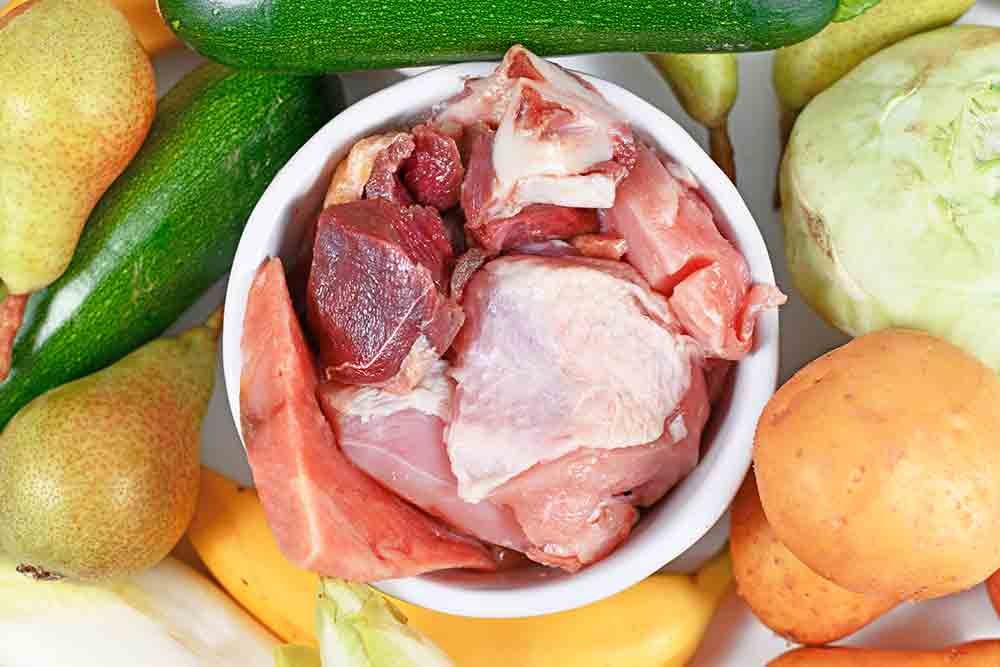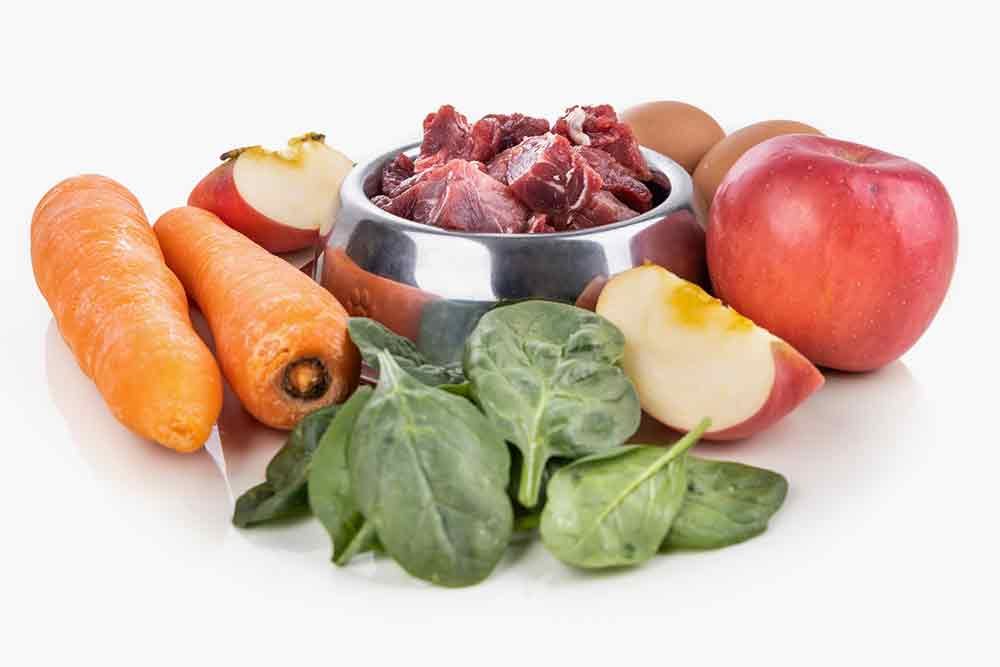Are you the proud owner of a majestic Cane Corso, or considering bringing one of these loyal Italian mastiffs into your life? If so, you're in the right place to learn about one of the most crucial aspects of caring for these powerful dogs: their diet and nutrition. As a veterinary expert and responsible Cane Corso breeder, I'm here to guide you through the ins and outs of feeding your Cane Corso for optimal health and vitality.
Understanding Cane Corso Nutritional Needs
Before we dive into the specifics of feeding your Cane Corso, it's essential to understand their unique nutritional requirements. These large, muscular dogs have specific dietary needs that differ from other breeds.

Protein Requirements for Muscle Development
Cane Corsos are known for their impressive musculature, and maintaining that requires a diet rich in high-quality protein. Aim for a diet where protein makes up 22-26% of their daily intake. Look for protein sources like:
- Chicken
- Beef
- Fish
- Lamb
These protein sources provide essential amino acids that support muscle growth and maintenance. Remember, not all proteins are created equal - opt for whole meat sources rather than by-products.
Importance of Fats in the Cane Corso Diet
While many dog owners are wary of fats, they play a crucial role in your Cane Corso's diet. Healthy fats should comprise about 12-16% of their diet, providing:
- Energy for their active lifestyle
- Support for skin and coat health
- Assistance in absorbing fat-soluble vitamins
Look for foods with healthy fat sources like fish oil, flaxseed, and chicken fat. These provide essential omega-3 and omega-6 fatty acids.
Carbohydrates: Energy Source for Active Cane Corsos
Although Cane Corsos don't require as many carbohydrates as some other breeds, they still need this macronutrient for energy. Aim for complex carbohydrates that make up about 30-40% of their diet. Good sources include:
- Sweet potatoes
- Brown rice
- Oatmeal
- Peas
These provide sustained energy without causing rapid spikes in blood sugar levels.
Feeding Your Cane Corso Through Different Life Stages
Just like humans, Cane Corsos have different nutritional needs as they grow and age. Let's break it down by life stage.

Cane Corso Puppy Nutrition: Supporting Rapid Growth
Cane Corso puppies grow rapidly and need a diet that supports this growth without causing health issues. Here's what you need to know:
- Protein: Aim for foods with 26-30% protein content.
- Fat: Look for 12-16% fat content for energy and development.
- Feeding frequency: Feed 3-4 times daily until 6 months old.
Pro tip: Avoid overfeeding! It's tempting to give in to those puppy eyes, but excess weight can lead to joint problems in this large breed.
Adult Cane Corso Feeding Guidelines
Once your Cane Corso reaches adulthood (around 18-24 months), their nutritional needs stabilize. Here's a quick guide:
- Protein: 22-26% for maintenance
- Fat: 12-16% for energy
- Feeding frequency: Twice daily
Remember, every dog is unique. Monitor your Cane Corso's weight and adjust portions as needed.
Senior Cane Corso Diet: Adjusting for Aging Dogs
As your Cane Corso enters their golden years (typically around 7-8 years old), their dietary needs change again:
- Reduce calorie intake to prevent weight gain
- Increase fiber for digestive health
- Consider supplements for joint health
Always consult with your vet before making significant changes to your senior dog's diet.
Best Food Options for Cane Corsos
Now that we understand the nutritional needs of Cane Corsos, let's explore the best food options available.
High-Quality Commercial Dog Foods for Cane Corsos
Many excellent commercial dog foods are formulated specifically for large breeds like the Cane Corso. Look for brands that:
- List a high-quality protein source as the first ingredient
- Contain no artificial preservatives or colors
- Are appropriate for your dog's life stage
Some top-rated brands include:
- Orijen Large Breed
- Blue Buffalo Wilderness Large Breed
- Royal Canin Cane Corso Adult
Raw Diet for Cane Corsos: Pros and Cons
Raw diets, also known as BARF (Biologically Appropriate Raw Food), have gained popularity. Here's a quick breakdown:
Pros:
- Mimics ancestral diet
- May improve coat and skin health
- Can help with allergies
Cons:
- Risk of nutritional imbalances if not properly formulated
- Potential for bacterial contamination
- More time-consuming to prepare
If you're considering a raw diet, consult with a veterinary nutritionist to ensure it's balanced and safe.
Homemade Meals: Balancing Nutrients for Your Cane Corso
Preparing homemade meals allows you to control exactly what goes into your Cane Corso's diet. However, it's crucial to ensure the meals are nutritionally balanced. Here's a simple recipe to get you started:
Balanced Cane Corso Meal
- 2 cups lean ground beef (protein source)
- 1 cup cooked brown rice (carbohydrate source)
- 1/2 cup mixed vegetables (nutrient source)
- 1 tablespoon fish oil (healthy fat source)
Always consult with a veterinary nutritionist before switching to a homemade diet to ensure all nutritional needs are met.
Feeding Schedule and Portion Control
Proper feeding schedule and portion control are crucial for maintaining your Cane Corso's health and preventing obesity.

How Much Should You Feed a Cane Corso?
The amount to feed your Cane Corso depends on several factors:
- Age
- Weight
- Activity level
- Type of food
As a general guideline, adult Cane Corsos typically need 20-25 calories per pound of body weight daily. For a 100-pound Cane Corso, that's about 2000-2500 calories per day.
Meal Frequency: How Often to Feed Your Cane Corso
- Puppies (2-6 months): 3-4 meals per day
- Puppies (6-12 months): 2-3 meals per day
- Adults: 2 meals per day
Consistency is key. Try to feed at the same times each day to establish a routine.
Avoiding Overfeeding and Obesity in Cane Corsos
Cane Corsos are prone to obesity, which can lead to various health issues. Here are some tips to prevent overfeeding:
- Measure portions accurately
- Limit treats to 10% of daily calorie intake
- Adjust food intake based on activity level
- Regular weigh-ins to monitor weight
Remember, a fit Cane Corso should have a visible waist and you should be able to feel (but not see) their ribs.
Special Dietary Considerations for Cane Corsos
Every Cane Corso is unique, and some may have special dietary needs. Let's explore some common considerations.
Common Food Allergies in Cane Corsos
While Cane Corsos can develop allergies to any food, some common culprits include:
- Beef
- Dairy
- Wheat
- Chicken
Signs of food allergies may include:
- Itchy skin
- Ear infections
- Gastrointestinal upset
If you suspect a food allergy, consult your vet about conducting an elimination diet.
Supplements for Cane Corso Health
While a balanced diet should provide most nutrients, some Cane Corsos may benefit from supplements:
- Glucosamine and Chondroitin: For joint health
- Omega-3 Fatty Acids: For skin, coat, and joint health
- Probiotics: For digestive health
Always consult with your vet before starting any supplement regimen.
Treating Hip Dysplasia Through Diet
Hip dysplasia is a common concern in large breeds like the Cane Corso. While diet can't cure hip dysplasia, it can help manage the condition:
- Maintain a healthy weight to reduce stress on joints
- Include omega-3 fatty acids to reduce inflammation
- Consider supplements like glucosamine and chondroitin
Monitoring Your Cane Corso's Nutritional Health
Regularly assessing your Cane Corso's health is crucial to ensure their dietary needs are being met.

Signs of a Well-Nourished Cane Corso
A well-nourished Cane Corso will exhibit:
- Shiny, healthy coat
- Clear, bright eyes
- Good energy levels
- Proper weight (visible waist, palpable ribs)
- Regular, formed stools
When to Consult a Veterinary Nutritionist
Consider consulting a veterinary nutritionist if:
- Your Cane Corso has ongoing health issues
- You're considering a homemade or raw diet
- Your dog has multiple food allergies or sensitivities
- You're unsure about your dog's specific nutritional needs
Adjusting Diet for Health Issues in Cane Corsos
As Cane Corsos age or develop health issues, their diet may need adjusting. Common conditions that may require dietary changes include:
- Kidney disease
- Diabetes
- Pancreatitis
- Cancer
Always work with your veterinarian to develop an appropriate dietary plan for your Cane Corso's specific health needs.
Providing the right diet and nutrition for your Cane Corso is crucial for their overall health, longevity, and quality of life. By understanding their unique nutritional needs and following the guidelines outlined in this article, you can ensure your Cane Corso thrives at every stage of life. Remember, every dog is an individual - what works for one may not work for another. Always monitor your dog's health and consult with your veterinarian for personalized advice.
Do you have any questions about feeding your Cane Corso? Are you currently facing any challenges with your dog's diet? Share your thoughts or experiences in the comments below! And if you found this guide helpful, don't forget to bookmark our site for more expert advice on caring for your Cane Corso.
[Insert relevant, high-quality image of a healthy Cane Corso here]
Alt text: A muscular, well-nourished Cane Corso standing alertly, showcasing its healthy coat and ideal body condition.
Remember, a well-fed Cane Corso is a happy, healthy Cane Corso. Here's to many years of companionship with your magnificent Italian Mastiff!


Leave a Reply